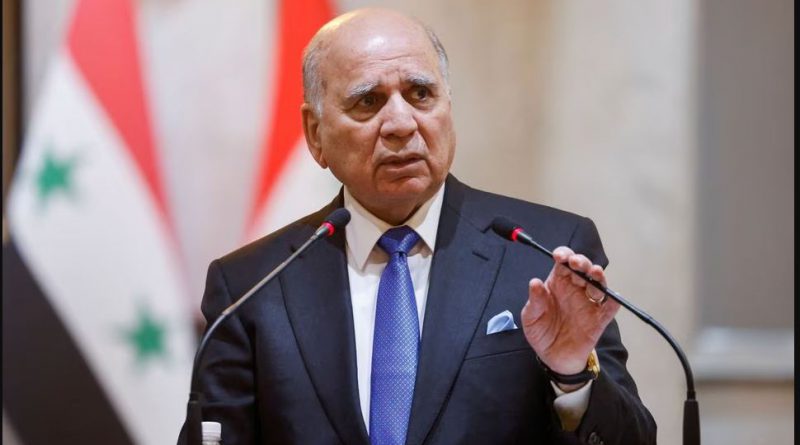Iraq to pay $2.76 billion in gas and electricity debt to Iran
Baghdad (Reuters) – Iraq has agreed to pay about $2.76 billion in gas and electricity debt to Iran after receiving a sanctions waiver from the United States, a senior Iraqi foreign ministry official said.
Iraqi Foreign Minister Fuad Hussein was given the clearance during a meeting with U.S. Secretary of State Antony Blinken on the sidelines of the Riyadh Conference on Thursday, the foreign ministry source, who spoke on condition of anonymity because he is not authorised to speak to the media, told Reuters.
Due to decades of conflict and sanctions, Iraq is dependent on imports from Iran for a lot of its gas needs.
However, U.S. sanctions on Iranian oil and gas have hampered Iraq’s payments for imports, putting it in heavy arrears and leading Iran to retaliate by cutting gas flows regularly.
Iraqi Foreign Ministry spokesperson Ahmed Al-Sahhaf said in a brief statement that Hussein had made progress “regarding financial dues between Iraq and Iran during his discussion with his American counterpart in Riyadh” when asked about the funds.
He did not give further details.
Yahya Al-e Eshaq, head of the Iran-Iraq chamber of commerce, was quoted by Iranian news agencies as saying that “Part of Iran’s blocked funds in Iraq has been earmarked for haj pilgrims and portions have been used for basic goods.”
The Iraqi foreign ministry source said that the funds will be transferred through the Commercial Bank of Iraq and confirmed that the money will be used for Iranian pilgrims’ expenses and foodstuffs imported by Iran.
Iran has been unable to access billions of dollars in assets in several countries due to U.S. sanctions.
The United States has insisted that oil-rich Iraq, the OPEC group’s second-largest producer, moves towards self-sufficiency as a condition for its exemption to import Iranian energy, yet Baghdad has struggled to do so.



